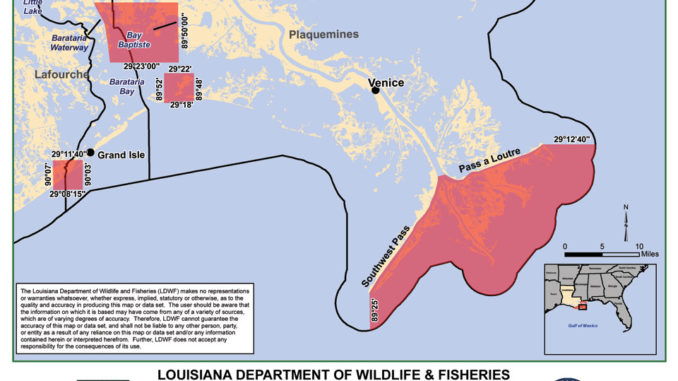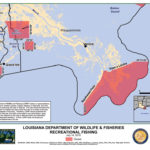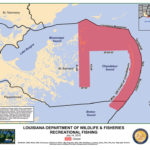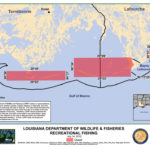
For the past three months, Louisiana’s recreational anglers have had to surf Internet sites and study maps with their GPS units in hand to determine if they could legally fish their favorite areas.
Those days, for the most part, have come to an end.
Citing new information from the federal government, the Louisiana Wildlife and Fisheries Commission held a special meeting on Wednesday (July 14) to consider opening areas closed to all fishing due to the BP oil spill to recreational fishing, including charter boat captains and bait dealers.
After hearing public comments from a variety of Louisiana citizens including recreational anglers, charter captains, seafood wholesalers and distributors, CCA-LA and the Louisiana Wildlife Federation, the commission voted unanimously in favor of the proposal.
Click here to view the map of the remaining Grand Isle and Venice closures. To see the remaining closures in the Houma marshes, click here. A map of the remaining closures in the Breton and Chandleur sounds can be seen here. An interactive map can be accessed here.
Before the vote, Sec. Robert Barham told the commission that the Environmental Protection Agency had not found any evidence of dispersant in Louisiana’s inside coastal waters.
“That gave us a change of confidence,” Barham noted. “If we don’t have hydrocarbons — we’ve run hundreds of samples on crab, shrimp and finfish, and there is no dispersant present — our position has always been to get people fishing as rapidly as we could, and we are in that situation now.”
Voicing their support for the decision were CCA-LA and the Louisiana Wildlife Federation. Although not officially supporting the proposal, the Louisiana Department of Environmental Quality’s Chris Piehler said he saw no risk associated with eating oysters, crabs, shrimp or finfish.
“We’re not taking a position on this,” he began. “We’re here to provide information to help the commission make an informed decision. Our observation from the data is that there is no reason for any worry over health advisories or human health risks.”
However, all in attendance did not support the proposal. Robert Walker, owner of Louisiana Seafood Exchange Inc., stated that he did not understand the rush to put recreational fisherman out there in closed areas.
“We are hours away from knowing if they can close (the leak),” he said. “And if that happens, we’re only days or weeks away from some areas clearing up. Everybody needs to check their sentiments of commercial versus recreational fisherman at the door. If we’re going to divide the forces, we’re going to have a major problem in the national media.”
Ewell Smith, executive director of the Louisiana Seafood Board, also spoke out against the proposal. His concern was that Louisiana would be mixing its message about whether our seafood was safe to eat.
“In Louisiana, we’re tuned in,” he said, “but across the nation, we’ve got to educate consumers where seafood comes from. If they see fishing boats in closed areas, it’s kind of like teaching a child who doesn’t know (anything about cows) where milk comes from. If we pass this, we will accelerate the collapse of our markets.”
Capt. Dudley Vandenborre again spoke out in favor of allowing recreational anglers to fish, but he had some reservations about being allowed to guide on waters where other commercial interests couldn’t make money off the resource.
“Speaking as a guide, how can I tell a crabber that he can’t go fish but I can?” Vandenborre said. “I use the resources just as much as the commercial crabbers and shrimpers, but for recreational fishing, I don’t see a problem with it.”
In the end, Vandenborre’s position didn’t matter because the resolution included charter fishing. As for other commercial anglers, Assistant Secretary Randy Pausina said their wait to get back to fishing shouldn’t be too much longer.
“With these maps, the green is not only what we are proposing to open for recreational fishing,” he said. “It’s also what the FDA is considering opening for the commercial side as well.”





